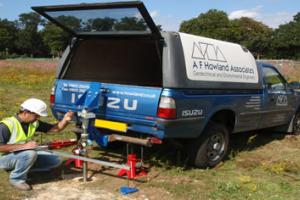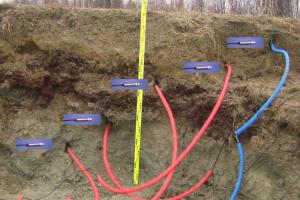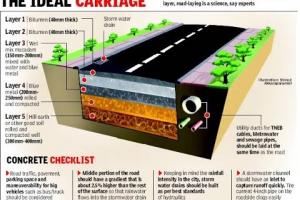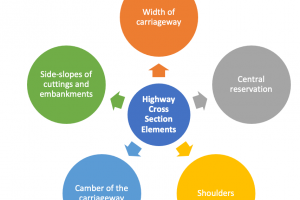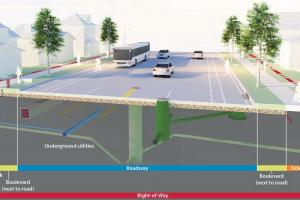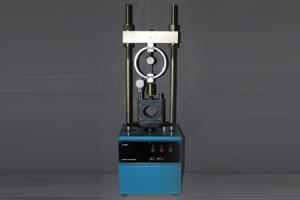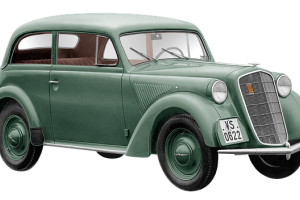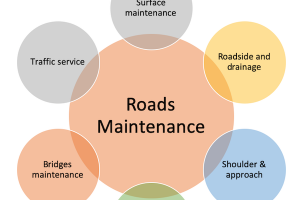Coning of Railway Wheels - Advantages and Disadvantages
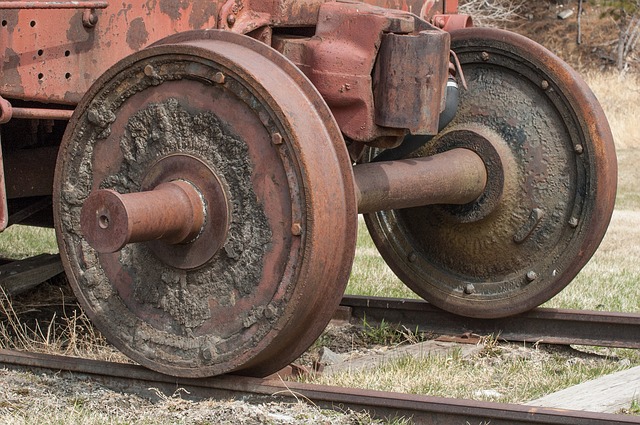
Coning of Wheels
In coning of wheel the tread or rim of wheels of railway vehicles is made in the shape of a cone with the slope of about 1 in 20. It maintains vehicle in the central position w.r.t. the track. On straight track, portions of wheels running on track have same diameter. While on curved path, the outer wheel has to cover larger distance than the inner wheel. Thus, the portions of wheels running on track have different diameters which help in smooth running of wheels.
Advantages of Coning of Wheel
Coning of wheel has the following advantages:
- Smooth riding - Help vehicle to negotiate curves smoothly
- Reduces wear and tear of wheel flanges. Damage is caused because of the friction action of rims with inner faces of the rail top.
- It gives an option of lateral drift of the hinge with its wheels.
- It prevents, to some extent, the slipping of the wheels.
Disadvantages of Coning of Wheel
Some of the disadvantages of coning of wheel are as follow
- The pressure on the horizontal component of force near the inner edge of outer rail has a tendency to wear the rail quickly
- The horizontal component has to turn the rail outwards and hence the gauge may be widened
- If no base plates are provided, sleepers under the outer edge of the rail may be damaged
In order to minimize the above mentioned disadvantages, the Tilting of Rails is done.
Tilting of Rails
In order to minimize the disadvantages caused by coning of wheels, the rails are tilted inwards at an angle of 1 in 20. This reduces wear on the rail as well as on the tread of the wheel. Tilting of rails can be achieved by:
- Adzing of Sleepers
- Use of Canted Base Plate
Advantages of Tilting Of Rails
Tilting the rails has the following advantages
- It maintains the gauge properly
- The wear at the head of rail is uniform
- It increases the life of sleepers and rails



